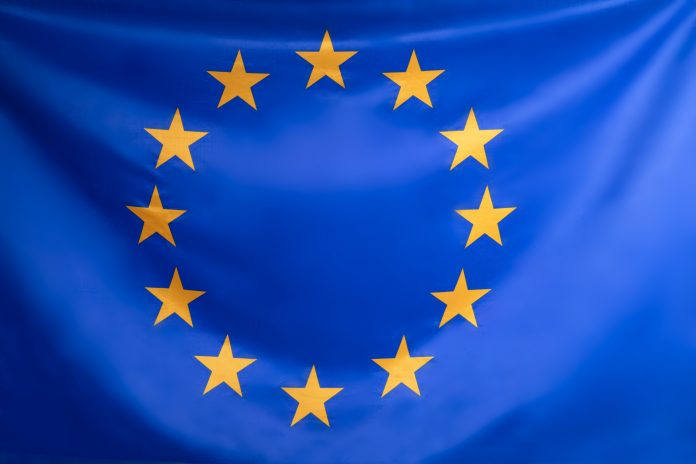Mariya Gabriel, European Commissioner for Innovation, Research, Culture, Education and Youth, calls attention to building a pan-European innovation potential ecosystem in health served with top-notch infrastructures
Europe is a recognised global scientific powerhouse, but we need to further strengthen our innovation potential to transform research outputs into marketable products. The green and digital transitions are key political priorities obliging us to be at the forefront of innovation. We need to accelerate the pace to achieve carbon neutrality and address the challenges of the digital age.
The war in Ukraine brought additional challenges, both humanitarian and economic, just when Europe was starting the post-pandemic recovery, supported by an unprecedented agreement on the Next Generation investment package. The aim is to increase our resilience, be better prepared to cope with future large-scale health crises and drive our economies and societies towards more sustainability.
The latest developments confirm that Europe needs to look at its recovery and resilience in a context of more strategic autonomy, reducing the external dependencies in strategic sectors including health but also energy, food supply and transport. With the communications on the new European Research Area, European Education Area and the Strategy for Universities, we started to define a clear policy context, roadmaps and targets.
My ambition is to build on those and go further to foster a pan European ecosystem for innovation as a framework for engaging stakeholders. Our work to improve the European innovation potential focuses on five flagships, corresponding to well-identified challenges of the new Innovation Agenda for Europe.
Namely, by incentivising private investments and improving access to capital and by allowing targeted regulatory sandboxes in specific areas to accelerate the green and digital transition. It is essential to improve our local innovation ecosystems and their governance to maximise their contribution to European cohesion through “partnerships for regional innovation.”
We also need a slim-governance for policymaking and monitoring to guide and promote the dialogue between European Innovation Council, Member States and Regions. Finally, we need to ensure that Europe invests in “deep tech talent” responding to the foreseeable demand in areas such as advanced materials circular manufacturing, synthetic biology, health, electronics, aerospace and sustainable energy.
How can we make this happen?
We have the resources to make a difference. The national recovery plans contemplate a large investment in R&I. Altogether Member States devoted around €45 billion to research and innovation. The EU has Horizon Europe, the world’s largest R&I programme with €95 billion served with a full set of instruments to support cutting-edge innovation projects and the public and private actors of innovation. Research and innovation in health is a clear example of the need to foster synergies between national and European strategic agendas and build innovation ecosystems.
Bringing closer the actors of the health value chain is important to direct our investments towards a broader set of challenges, beyond the COVID-19 pandemic, including non-communicable diseases, such as cancer, neurodegenerative diseases and antimicrobial-resistance, responsible for more than 80% of deaths in Europe.
Together with Member States, we decided to launch a specific Horizon Europe partnership on resilience to optimise synergies, look at the lessons learned from the COVID-19 pandemic and reinforce the budget allocated to the Horizon Europe cluster dedicated to Health. The European Innovation Council (EIC) has the mechanisms to support companies from the lab, throughout clinical trials, to the market and an extensive portfolio of projects and companies in innovative health, biotech and medtech areas. For example, a French biotech SME – Xenothera – is developing an anti-COVID-19 treatment, (1) whereas the Finnish Faron Pharmaceuticals is working on a novel anti-cancer solution. (2) With its Pathfinder programme, the EIC supports the exploration of radically new technologies.
In 2022, two Pathfinder challenges will fund breakthrough technologies in cardiogenomics and technologies to support a radical shift from episodic to continuous healthcare. The industrial sectors involved in health R&I (pharmaceutical, digital, IT, medical devices, diagnostics, etc.) need to improve in the setting up of pan-European collaborations to grasp new opportunities to integrate results from different sectors in a way that could really transform healthcare. Innovation ecosystems can foster health innovations with European and local impact, requiring collaboration among different stakeholders.
The health industry is crucial for translating research results into innovative products available to citizens and patients. With that in mind, the Innovative Health Initiative (IHI) will bring together diverse health stakeholders (universities, large and small companies, etc.,) in collaborative projects that address disease areas where there is a high burden on patients and/or society. We will also count on the support of the new European Health Emergency Preparedness and Response Authority to reinforce the dialogue with industry regarding, for instance, a long-term strategy for manufacturing capacity and targeted investment, and to address supply chain bottlenecks for medical countermeasures.
I conclude by underlying the most important lesson from the COVID-19 pandemic, which was the importance of coordinating health research and innovation among European countries, and the importance of building a pan-European innovation ecosystem in health served with top-notch infrastructures. Stronger involvement of end-users (such as patients, carers, health care professionals and providers) in the development of innovation is crucial for improved uptake of innovations.
This includes ensuring that innovative products respond to the needs of end-users and are user-friendly, established on a basis of trust and awareness. Let’s continue to work on that!
References
(1) XAV-19, a polyclonal antibody
(2) An antibody against immunosuppressive molecule Clever-1 can override the immune tolerance of tumours and activates the patient’s immune defence against cancer











